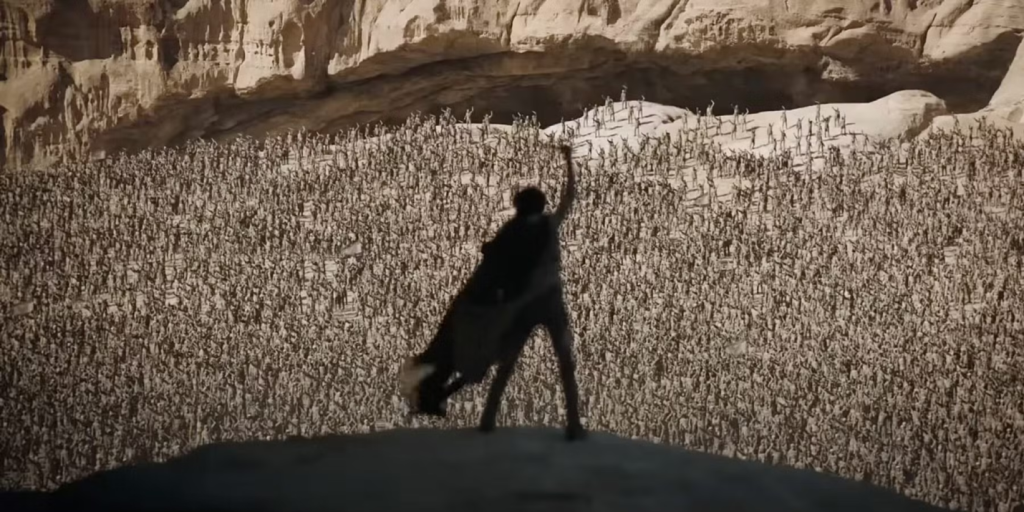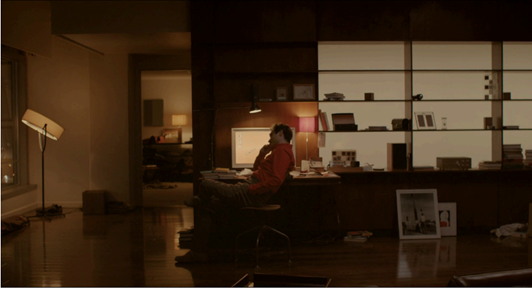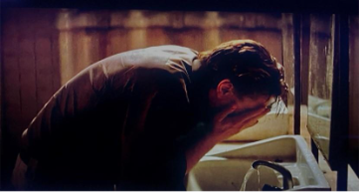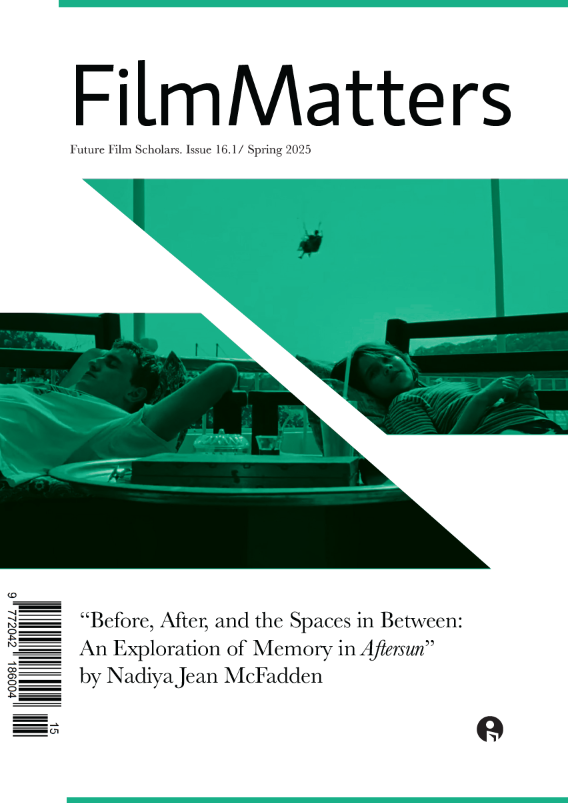Film Matters is actively seeking book and film/DVD/Blu-ray reviews by current undergraduate students for future print issues.
Continue readingFlash Essays on Why Film Matters Now, or Hot Takes on Hot Takes
In “How to Tell the Difference Between a Hot Take and a Good Idea,” critic and essayist Jia Tolentino describes a “hot take” as a piece of writing that’s “primarily gestural” and “primarily based on reaction—both the illusory need to react, and the idea that a reaction is worth paying attention to simply because it exists.” She defines a “hot take” as “close to [her] personal definition of trolling.” Innumerable magazines and media sites ridicule the “hot take” as shallow and superficial clickbait; in Spring 2025, we sought to transform the notion of the hot take into a substantive yet brief piece of film criticism.
In a collaboratively written Call for Papers that we circulated widely, we asked our fellow undergraduate peers for their hot takes, and we conveyed our hopes that they would contribute to our dossier. As the world moves more quickly and existing structures (and forms of culture) risk disappearance, we wanted to build a collection of film-focused and impassioned arguments. We asked students to add their voices to this chorus and to contribute their reflections, such that all of us—as editors, writers, students, audiences, humans—might appreciate how movies can offer a source of comfort, connection, debate, and discovery.
We gave our undergraduate peers the following prompts to structure their writing. We encouraged them to choose a film that fulfills one of the following criteria:
- A movie that’s popular that you don’t like, or a movie that you love that’s unpopular (note: avoid “strawman” arguments about “what critics say” so as to differentiate your voice by comparison; if you choose this option, briefly establish, as convincingly as possible, the general consensus against which you’re arguing via either critical [quote an established critic’s words] or popular [box-office data] contexts). You might turn to Rotten Tomatoes aggregate numbers (imprecise as they might be) as one way of establishing data for a beloved or critically derided film. (You might, for example, explore the redemptive value of a film that’s considered “cringe cinema…films that encourage our compassion or conversely, provoke our contempt,” as Aidan O’Malley argues in a recent issue of Film Matters).
- A movie that you read against the grain, as in, a film that’s conventionally thought of as mainstream that you perceive as having revolutionary or inspiring potential (i.e., a film might not explicitly include a gay character but could nonetheless have queer underpinnings, e.g., Frankenstein [1932] or High School Musical [2006]; or maybe you appreciate genre’s affordances in unconventional ways, e.g., Die Hard [1988] as the perfect breakup movie). In other words, write about a film that surprises you for the better.
We explained that a flash essay should be built of strong feelings and also should elicit strong feelings from your readers. We expected writing that would—more than a screen rant, paean, or manifesto—offer brief analysis of the film via details (about character, film techniques, history, etc.) that make and support their arguments. We encouraged students to focus on one scene or moment that supports their argument and encapsulates their ideas most vividly. What, within this scene/moment, does the writer despise or celebrate? What, here, do they find uplifting, disappointing, inspiring, compelling, and how? We asked for 250-750 words of students’ most polished, detail-rich, exacting, precise, inspired prose.
We conveyed to our writers what we now convey to our readers: at the heart of this project is a commitment to movies and art as transformative, meaningful, and central to our lives. Implicit in this call and now in this dossier there is a chance to have a broader conversation about survival within tumultuous times, about belonging to and finding community through divergent perspectives. Participating in this dossier—as writers, readers, and editors—gave all of us, from a variety of colleges, a chance to learn from each other through sharing our ideas about film.
Sincerely,
Georgia Tech Online Editorial Board
Thomas Avery
Corbin Bean
Jenesis Bronner
Camryn Bryant
Amanda Cowan
Chandler Fortune
Nakai Jack
Hannah Marsh
Abigail Reams
Ella Rowsey
Sloan Salinas
Beth Stengell
Sophia Voyles
Sallie Kate Worley
Contents
- Better Man, by River Waters
- Diary of a Wimpy Kid, by Faith Hardie
- Dune 2, by Preston Gambrell
- The Exorcist, by Ari Hammond
- Ferris Bueller’s Day Off, by Nicole McKendrick
- Fish Tank, by Manie Joses
- Her, by Max Chouinard
- Inception, by Erica Freeman-Carter
- Kaguya-sama: Love Is War, by Minh Le
- La La Land, by Mackenzie McCarron
- La La Land, by Stephen Rini
- The Lone Ranger, by Kloe Kelly
- The Lorax, by Maddie Gill
- Mad Max: Fury Road, by Ethan Gerrard
- Marriage Story, by Brealin Maya
- Pulp Fiction, by Annie-Faith Obed
- Requiem for a Dream, by Ezra Minard
- Scooby-Doo, by Saige Gipson
- Scooby-Doo, by Roxana Sherahmad
- Shark Tale, by Katie Arce
- Tomorrowland, by Alyssa Pope
- Touki Bouki, by Miles Hart
- Uptown Girls, by Mia Mattern
Hot Take: Everyone Should Have Been Excited for Better Man. By River Waters
Part of me was truly hopeful that Michael Gracey’s Better Man (2024) would be a box office hit. It did not seem like it necessarily went unnoticed. There was plenty of buzz in online film spaces after the trailer first came out. After all, it was difficult to simply gloss over a musical biopic about British pop star Robbie Williams except he is a CGI Planet of the Apes style monkey, even if it was about somebody that most people in the U.S. (myself included) had never heard of. When I saw that trailer, I had a feeling in my gut that we had an instant classic on our hands, and no one could see it yet. My friends all thought I was crazy. Maybe I am just starved for things that dare to stand out in the current cinematic landscape, or maybe I am just easily pleased. Whatever the case, I took a friend (one of the doubters) to see it opening weekend and both of us were blown away.
Continue readingThat’s Rock and Roll, Bro: A Hot Take on Diary of a Wimpy Kid: Rodrick Rules, Nostalgia, and Youth Culture. By Faith Hardie
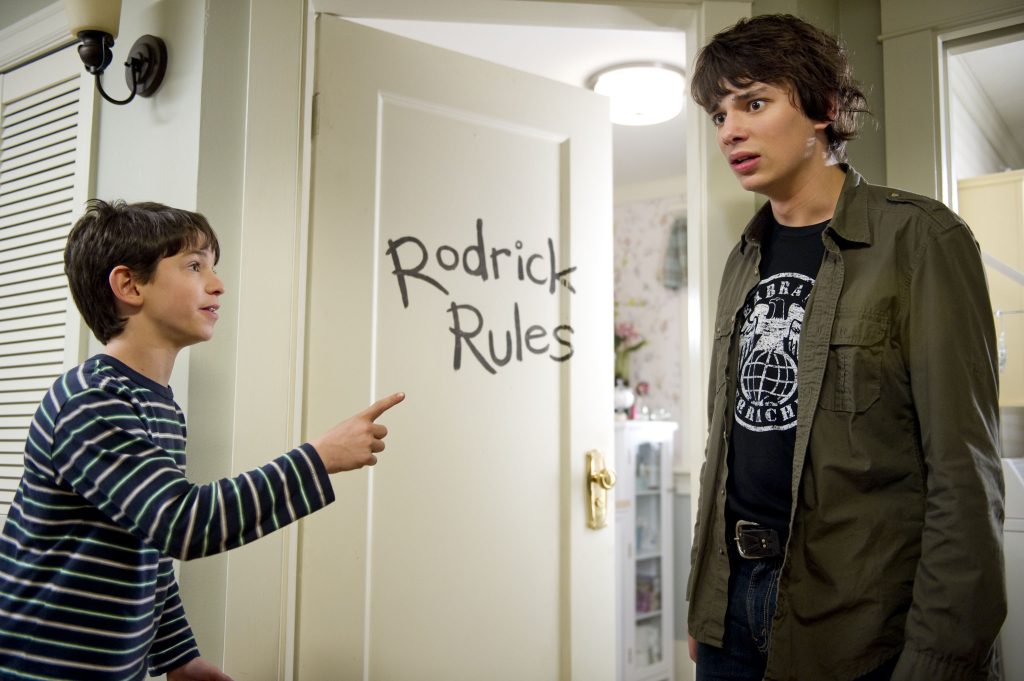
In 2011, a narcissistic pre-teen Greg Heffley (Zachary Gordon) graced the silver screen alongside the tumultuous Heffley family in David Bowers’s surprisingly timeless Diary of a Wimpy Kid: Rodrick Rules. A film that by no means possesses a notable deal of pre-release hype or expectations of high-art cinema, Rodrick Rules completely steamrolled the initial Diary of a Wimpy Kid as a sequel. Rodrick Rules is exactly what you would expect from a comedic, young-adult adaptation film; and yet, the film somehow persists as a cinematic embodiment of youth culture, cringey jokes and all.
Continue readingDune 2 (2024). By Preston Gambrell
I’m not a fan of Dune 2.
Continue readingThe Exorcist as a Comedy: Why the “Scariest Movie of All Time” Is Hilarious. By Ari Hammond

William Friedkin’s 1973 film The Exorcist has been heralded as one of the scariest movies of all time. Even now, fifty years after its release, it consistently tops lists and polls on the subject and is frequently discussed as a lingering, disturbing film that epitomized the Satanic Panic of the 70s and 80s. The combination of Friedkin’s esteemed directing, Jack Nitzsche’s spine-tingling score, haunting performances from stars, and grotesque special effects garnered critical and audience acclaim and an Academy nomination for Best Picture (The Exorcist). To suggest The Exorcist is anything other than a masterpiece of religious horror is nigh blasphemy, but I’d like to propose a comedic interpretation of the film as a metaphor for the purest horror in every woman’s life: puberty.
Continue readingStop and Look Around: Anti-Capitalism in Ferris Bueller’s Day Off. By Nicole McKendrick

Most people are familiar with John Hughes’s modern classic Ferris Bueller’s Day Off (1986), a narrative with the moral of taking your time and enjoying all of life’s pleasures. The film follows high school senior Ferris Bueller who convinces his two friends, Cameron and Sloane, to skip school and spend the day exploring Chicago. The narrative can be summarized by Ferris’s most famous quote in the film, “Life moves pretty fast; if you don’t stop and look around once in a while, you might miss it” (Hughes, 1986, 00:04:36). However, this quote can be interpreted through different understandings, such as a critique of the capitalist tunnel vision focused on social climbing, overlooking the small pleasures of life Ferris urges viewers to enjoy. An against the grain reading provides insight into the anti-capitalist worldview the film embraces. This perspective can be seen in the visual style and narrative throughout the film. Many elements in the film convey these anti-capitalist ideals, such as the red Ferrari, a consumerist product worshipped by Cameron’s father due to its price and status, and its destruction at the end. The Ferrari can be seen as an allegory for the inevitable downfall of capitalism and consumerism, with Cameron’s acceptance of its destruction echoing the realization the lower-class will have, recognizing the triviality of capitalism the children realize throughout the film. A vitally important scene to arrive at this understanding is the scene in which Ferris and his friends attend a high-class restaurant, highlighting the film’s anti-capitalist ideals. Through the presentation and staging of characters, this scene depicts a rejection of capitalism due to its subjective class categorizations and the ease with which capitalist rule can be subverted, conveying the film’s anti-capitalist ideals.
Continue readingBoxed In: Fish Tank and the Brutality of Girlhood. By Manie Joses
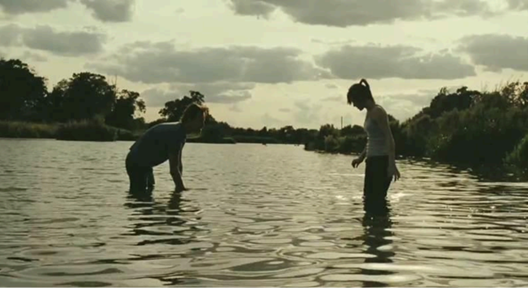
The first time I watched Andrea Arnold’s Fish Tank (2009), I was devastated. I was anticipating grit, but I wasn’t anticipating a film that would make me feel complicit in its discomfort. Critics praised its gritty realism and the trance-like debut of Katie Jarvis, but Fish Tank never made it across to mainstream success—and I understand why. This is not the dreamt-up London, nor the reborn one—it is an encircling maze of concrete and compromise.
Continue readingWhen Love Meets Algorithms: Why Spike Jonze’s Her Isn’t the Romance You Remember. By Max Chouinard
With five Oscar nominations, near-universal critical acclaim, and ranked #38 on Rotten Tomatoes’ list of top romantic movies, Spike Jonze’s Her (2013) resonated deeply with audiences through its exploration of modern romance. As Richard Corliss of Time Magazine notes, Jonze created “the splendid anachronism of a movie romance that is laugh-and-cry and warm all over, totally sweet and utterly serious.” However, beneath its surface-level charm lies an unsettling narrative about intimacy and control. Can a relationship truly be romantic if one partner is fundamentally incapable of autonomy? In the context of the #MeToo movement and the rise of commercial artificial intelligence such as ChatGPT, Samantha’s role shifts from a caring companion to a submissive, voiceless entity subjected to a psychological male gaze.
Continue readingThe (Mis)Interpretation of Dreams: Nolan’s Inception. By Erica Freeman-Carter
From Deleuze to Baudrillard, Inception (2010) unravels like a dreadful amalgamation of every first-year film lecture I sat through years ago: long and drawn out, whilst being slightly confusing. Nolan sets out to achieve a mind-bending, puzzle film that instead reads like a failed interpretation of psychoanalytic film theory. His desire to capture dream-like experiences fails to project the true disjointed and illogical nature of dreams as he struggles to find a happy medium between too much and too little narrative continuity. Nolan himself explained that the film is an exploration of what would happen if people shared a dream space, where an individual can access another person’s unconscious mind (Nolan and Thomas). Freud in The Interpretation of Dreams discusses the nature of unconscious dreaming; “the mind, as a result of its being turned away from the outer world during sleep, is not capable of giving interpretation to the objective sensory stimulus, but is forced to form illusions on the basis of the indefinite incitements from many directions” (Freud 186). The Nolan approach to capturing the unconscious mind fails to indulge in the true irrational nothingness that dreams evoke.
Continue readingKaguya-sama: Love Is War – Logic vs. Emotions. By Minh Le

Kaguya-sama: Love Is War (Kaguya-sama wa Kokurasetai, Mamoru Hatakeyama, 2022) is a romantic comedy anime series about the student council president and vice-president, Shirogane and Kaguya, as well as the absolutely comedic romantic shenanigans between them. Despite both of them liking the other person, and knowing that they probably like them back too, they absolutely refuse to confess, and their war is to get the other person to confess to them (yes, it doesn’t make sense, and that’s intentional).
Continue reading


